Description
ABSTRACT
Bank Lending and Mortgage Consent in Nigeria
Dr. Adesina Bello*
Lending by banks is the hub and lubricator of capitalism. A good chunk of global commercial transactions is facilitated by and revolve round banks. One of the ways by which banks secure moneys lent to their customers is through mortgage security. In Nigeria, alienation by mortgage of an interest in land requires the consent of the Governor of the state where the land is located. This article examines the impact of mortgage consent in bank lending. The article reveals that the doctrine of mortgage consent is paramount under the Land Use Act, and failure to comply with the provision of sections 22 and 26 of the Land Use Act will nullify a mortgage transaction. The article examines salient cases on mortgage consent within the context of banking practice, and how mortgage consent has impacted national development.
Keywords: Mortgage, Governor’s Consent, Alienation, Security.
INTRODUCTION
The principle of security by lenders dates to time immemorial. Security is a scheme available to lenders by which they are guaranteed that a borrower will repay the loan granted by them, and when the borrower defaults, the security can be sold to recoup the loaned sum. In Nigeria, land has prevalently been used as a subject of secured credit transactions. There are several reasons for this, such as: the immobility of land, land is less risky as a means of security for loans, and land titles are well documented. Mortgage serves to ensure that the mortgagee is able to recover any security described in the mortgage agreement when the mortgagor defaults. Therefore, the mortgagee has the power to sell the security/collateral. The condition precedent to the exercise of the power of sale by the mortgagee is the validity of the mortgage transaction as provided by sections 22 and 26, Land Use Act.
Sections 22 and 26 of the Land Use Act provide the guiding principle on alienation of interest in a right of occupancy. By the provisions, Governor’s consent must be had and obtained before any form of alienation can be carried out. Where the provisions are not followed, the transaction will be null and void.1 The importance of Governor’s consent cannot be over-emphasised. The consent serves as an assurance to the creditor that the mortgage documentation has been registered, and a major condition to the realisation of the mortgaged property has been complied with.
THE CONCEPT OF MORTGAGE
Mortgage is a legal agreement between the debtor (mortgagor) and the creditor (mortgagee) for a conditional alienation of property as security for loans given to the mortgagor by the mortgagee. According to Prof. I. O. Smith, mortgage is:
…a legal or equitable conveyance of title as security for the payment of debt or the discharge of some other obligation for which it is given, subject to a condition that the title shall be re- conveyed if the mortgage debt is liquidated.2
* Ph.D., BL. Senior Lecturer, Department of Private and Commercial Law, Babcock University School of Law and Security Studies, Iperu-Remo, Ogun State Nigeria.
- Sections 22 and 26, Land Use Act, Cap L5, Laws of the Federation of Nigeria, 2004.
- I. O. Smith, Practical Approach to Law of Real Property in Nigeria (Ecowatch publications Nigeria Ltd 2013).

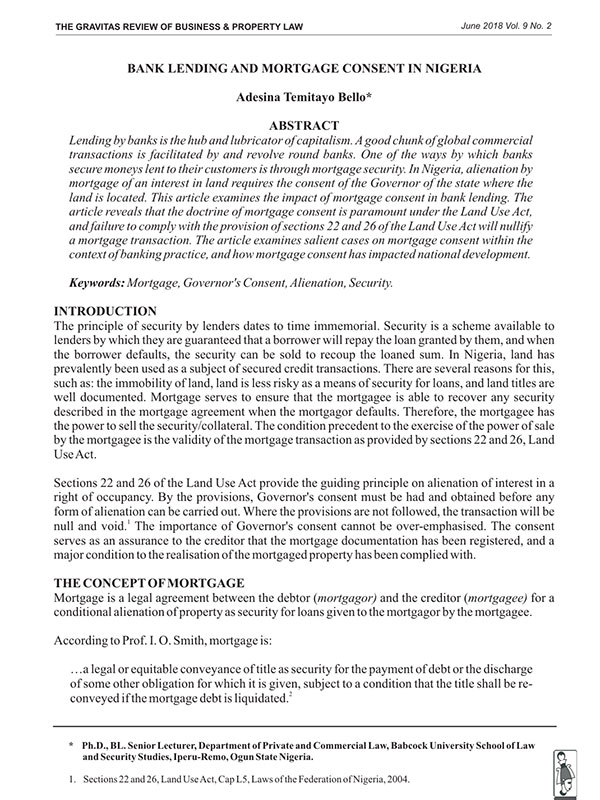
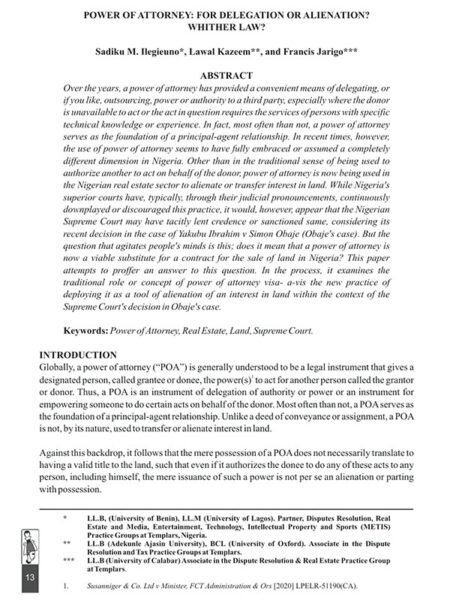
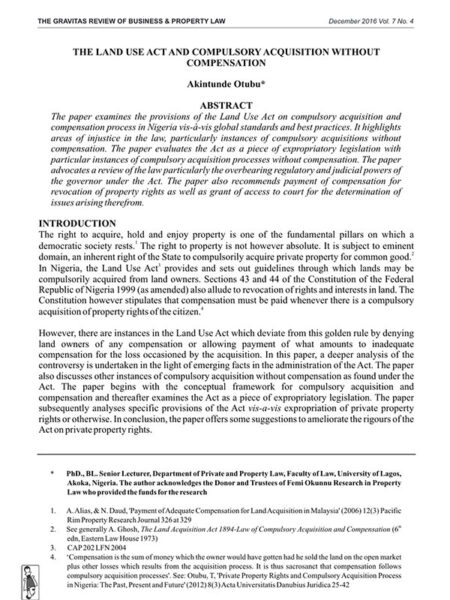
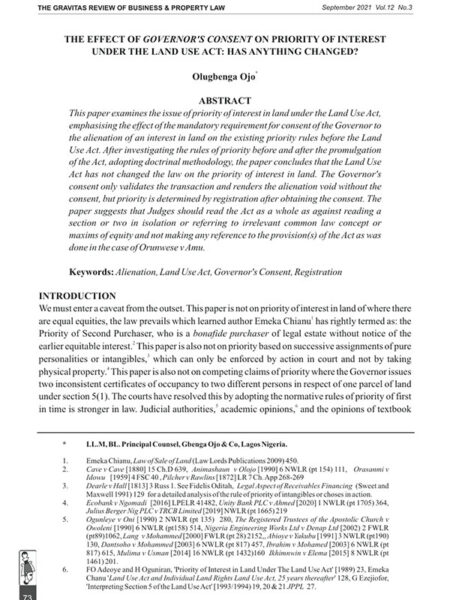
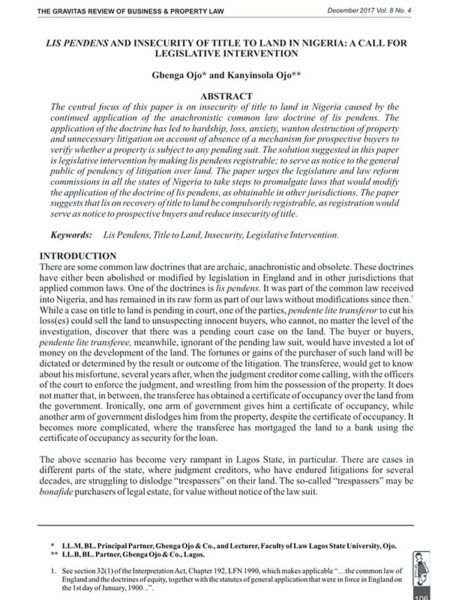


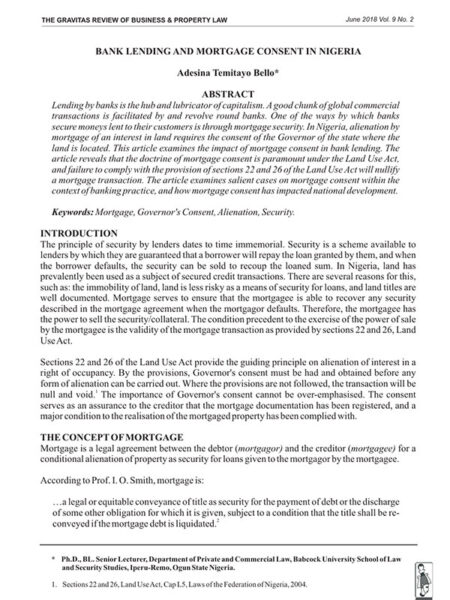
Reviews
There are no reviews yet.